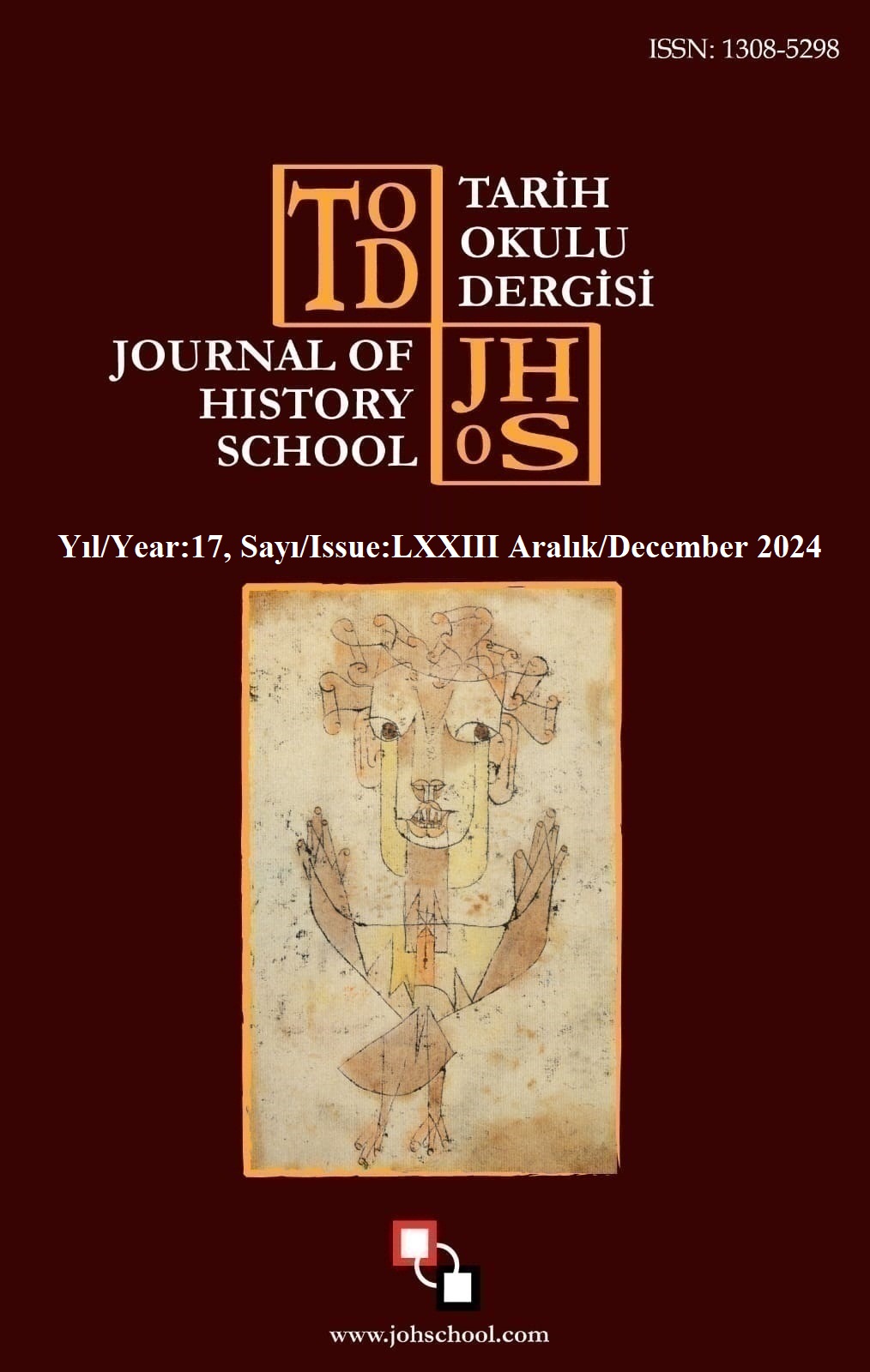LİSE ÖĞRENCİLERİNDE EBEVEYN AKADEMİK BAŞARI DESTEĞİ VE BASKISI İLE ERGEN-EBEVEYN KARİYER UYUMUNUN İNCELENMESİ
Author :
Abstract
Bu çalışmanın amacı, lise öğrencilerinde ebeveyn akademik başarı desteği ve baskısı ile ergen-ebeveyn kariyer uyumunu çeşitli değişkenler açısından incelemektir. Bu araştırmada ilişkisel tarama modeli kullanılmıştır. Araştırmanın örneklemini 2023-2024 eğitim öğretim yılı Diyarbakır ili merkez ilçelerinde 9., 10., 11. ve 12. sınıfa devam eden öğrenciler oluşturmaktadır. Veriler, Ebeveyn Akademik Başarı Desteği ve Baskısı Ölçeği, Ergen-Ebeveyn Kariyer Uyumu Ölçeği ve araştırmacı tarafından hazırlanan kişisel bilgi formu ile toplanmıştır. Araştırmadan elde edilen sonuçlara göre EABB puanları cinsiyete göre; EABD puanları sınıf düzeyine göre; EABBD puanları sosyoekonomik durum ve algılanan akademik başarı durumlarına göre anlamlı bir fark bulunmuştur. EEKU puanlarının sosyoekonomik durum ve algılanan akademik başarı durumlarına göre; EEKU benzerlik uyum puanları sınıf düzeyine göre anlamlı bir fark bulunmuştur. EEKU puanları cinsiyete göre anlamlı bir fark bulunmamıştır. EABB ve EEKU arasındaki korelasyonun negatif yönlü ve zayıf olduğu; EABD ile EEKU arasındaki korelasyon, pozitif ve orta düzeyde bir ilişki olarak bulunmuştur. Elde edilen bu sonuçlardan hareketle, ilgili alan yazına dayanarak bulgular tartışılmış ve gelecek araştırmalara yönelik öneriler sunulmuştur.
Keywords
Abstract
T
The aim of this study is to examine parental academic success support and pressure and adolescent-parent career adaptability in high school students in terms of various variables. Relational survey model was used in this study. The sample of the research consists of students continuing to the 9th, 10th, 11th and 12th grades in the central districts of Diyarbakır province in the 2023-2024 academic year. Data were collected using the Parental Academic Achievement Support and Pressure Scale, the Adolescent-Parent Career Adaptation Scale, and the personal information form prepared by the researcher. According to the results obtained from the research, a significant difference was found in PPAA scores according to gender; PAAS scores according to grade level; PAAPS scores according to socioeconomic status and perceived academic success status. A significant difference was found in APCC scores according to socioeconomic status and perceived academic success status; APCC similarity fit scores according to grade level. No significant difference was found in APCC scores according to gender. The correlation between PPAA and APCC was found to be negative and weak; the correlation between PPAA and APCC was found to be positive and moderate. Based on these results, the findings were discussed based on the relevant literature and suggestions for future research were presented.





